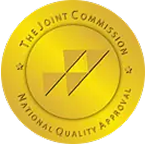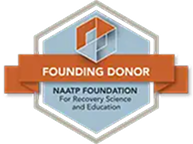5 Tips for Holiday Self-Care

The countdown to the holidays is on! For many, holidays mean delightful aromas, twinkling lights and celebrations with friends and family. For some, along with the anticipation of sharing joyous times together comes the realization that the holidays can be challenging when you’re in recovery. But, there is good news! It doesn’t have to be a struggle if you make a plan for your holiday self-care. Planning holiday self-care promotes your responsibility for recovery. It requires you to spend time and energy focusing on you and becoming comfortable with being clean and sober. The best part is you don’t have to do it alone. Here are five tips to help you develop an effective self-care plan for the upcoming holiday season:
Make time to attend extra meetings
Look for opportunities to attend extra AA or NA meetings in conjunction with your normal meeting days. Keep in mind that the more meetings you attend during the holidays, the more likely you are to remain clean and sober, preventing a relapse. A special tip: attend a meeting on the holiday before beginning the festivities.
Stay in contact with your support network
Connecting with those who support your recovery is crucial. After all, that’s what they’re there for, to help you through the tough times when you need them the most. So, don’t try to do it alone. Reach out to your therapist, recovery friends and family, and to your sponsor.
Come early, leave early
Arriving a bit early to the party and leaving early will enable you to have the best of both worlds. You can stay long enough to enjoy time with your friends and family but, leave early to avoid any behaviors that may trigger your desire to use. Special tip: take a friend who is also in recovery with you and serve as one another’s accountability partners.
As much as possible, maintain a normal schedule
During the holidays there may be some deviation from your daily routine but, as much as possible, try to maintain your regular schedule. This means continuing your work schedule, getting plenty of rest and finding time to do productive things that you enjoy. Your holiday self-care plan should create a balance between activities and rest. This will help you to avoid triggering dangerous emotions like stress or boredom.
Opt out when you need to
Understand that it is OK to say no to an invitation. Do an evaluation of who is attending and what type of activities are planned. Then, determine if going will threaten your recovery in any way. If so, don’t feel bad. Just politely thank the host and decline the invitation. People who are in your corner for recovery will understand.
Investing time to prepare for self–care allows you to think of the holiday season in a different way and marks the start of a new tradition in your life of recovery.
Special thanks to the Fellowship Hall Counselors who contributed to this article.






